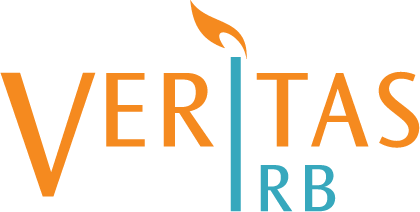In December 2015, a Canadian research sponsor submitted a Phase III, multicenter study to Veritas IRB for review. It involved women, 45 years of age and over. Veritas IRB approved the study with the condition that women of child-bearing potential must undergo routine urine pregnancy testing during their participation in the study and upon exiting the study, in addition to the baseline testing.
Instead of complying with the condition, the research sponsor threatened to withdraw its submission and seek approval from another IRB in Canada unless Veritas IRB removed its requirement for pregnancy testing. Veritas IRB upheld its condition and the research sponsor made good on its threat.
Why did Veritas IRB request pregnancy testing in the first place? Although the fertility potential of the female study population was expected to be low, the possibility of pregnancy existed.
The study protocol excluded pregnant women from entering the study as evidenced by a urine pregnancy test, however, it failed to monitor pregnancy during the study.
Interestingly, the study protocol clearly instructed investigators on what to do in the event of a pregnancy; immediately terminate study participation and report the event to the research sponsor, counsel the research participant, monitor the pregnancy until its conclusion, etc. – but it did not provide the investigator with the tools to assess pregnancy and reduce exposure of the embryo/fetus to the investigational drug.
Sadly, this study is currently being conducted in 25 Canadian centers. It is anticipated that 250 research participants will be enrolled into this study.
While on the topic of costs, what is the emotional cost to the woman who finds out she is pregnant after taking an investigational drug that may have harmed her unborn child? What are the personal, familial and societal costs involved in raising a child or caring for an adult with a congenital abnormality?
In Canada, the Declaration of Helsinki, ICH-GCP Guidelines and the TCPS require that investigators and IRBs ensure that all foreseeable risks to participants are appropriately minimized. An accredited IRB operating in Canada must comply with these guidelines order to maintain its accreditation!
This would not have been possible had standards been applied in a uniform manner by all private IRBs.
About the Authors

Martin Letendre
Martin Letendre is responsible for managing Veritas IRB's business operations and administering the activities of the Veritas IRB Boards. Martin is a member of the Quebec Bar and brings more than a decade of experience in health law and research ethics. His expert knowledge of, and ongoing activity and interest in research ethics have led to the publication of several reports and articles in peer-reviewed journals, and invitations as guest speaker at numerous conferences and scientific meetings. Martin was actively involved in the creation of an on-line tutorial for institutional research ethics boards in Quebec and was a member of Canada's three federal research agencies' Panel on Responsible Conduct of Research.


